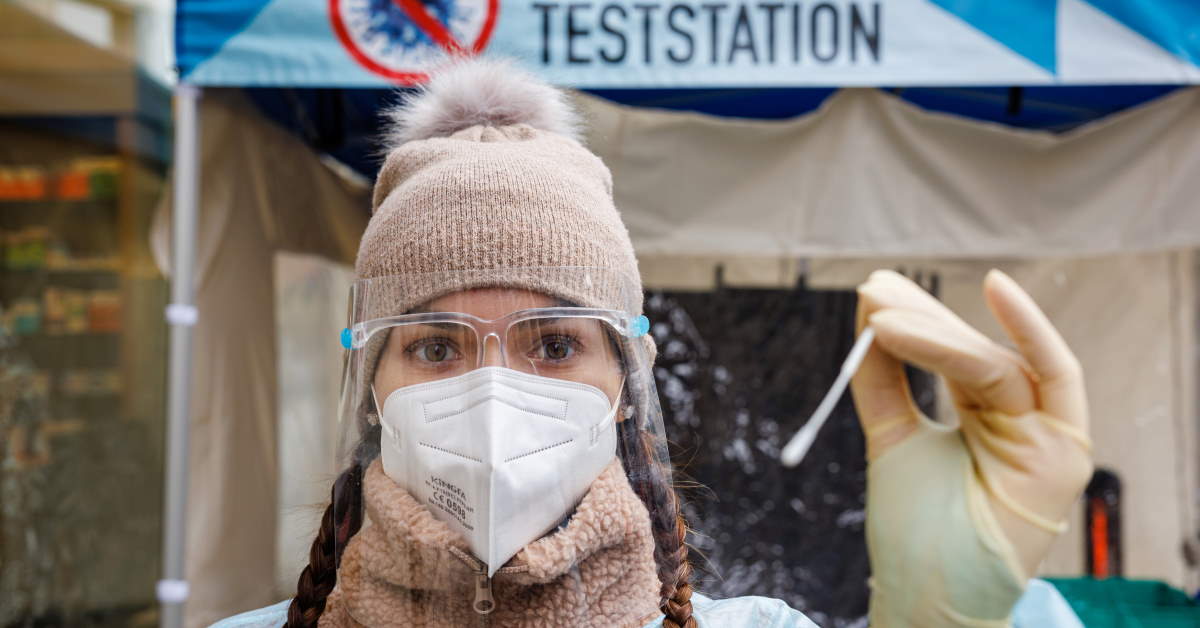Here’s how much a COVID test costs in some countries.
In Australia, a federal scheme introduced at the end of January allows pensioners and concession card holders to access up to 10 free rapid antigen tests over three months through their chemist. But the scheme got off to a difficult start, with supply issues hampering attempts to procure the tests.
In January the competition regulator raised concerns that rapid antigen tests often cost between A$20 and A$30 (£15-£20) per test and sometimes more than A$70 a test through smaller retail outlets, despite wholesale costs ranging from A$3.95 to A$11.45.
In Belgium the price of an antigen self-test sold in pharmacies is around €6-€8 (£5-£7), more expensive than in neighbouring countries, such as France and the Netherlands, although they are available in Belgian supermarkets for about €3. Prices have come down and are expected to fall further: one big pharmacy chain announced this week they had begun selling tests for €1.99.
While a PCR test, which costs about €41, is free for people with symptoms, or may be reimbursed by health insurance, self-tests usually have to be funded by individuals. The Belgian consumer association Test-Achats/Test Aankoop estimated this week that a family of four could spend €250 a month on COVID tests, hand sanitiser and face masks.
Self-administered tests in France cost between €4 and €5 in pharmacies and about €1.25 in supermarket multipacks. Lateral flow tests and PCR tests administered in pharmacies, laboratories and testing centres (both of which give you a result with a QR code allowing you to travel, for example) are free for all who are registered with the French healthcare system and fully vaccinated. People who are not in the system (tourists, for example) and those who are not fully vaccinated pay about €25 for a lateral flow and up to €45 for a PCR.
Germany abolished its system of free rapid coronavirus testing – used by Germans to get into venues such as theatres and football stadiums – in October. Unvaccinated people – except for pregnant women, children, or those advised against getting a vaccine on medical grounds – had to pay for the tests. The hope was that people would no longer rely on the test system as a way of avoiding getting a vaccine. However, a month later, free tests were reintroduced as authorities struggled to curb rapidly rising infection rates.
In South Africa rapid antigen tests sell for 380 ZAR (£18.50), and PCR tests double that.
Testing regimes vary across Spain’s 17 self-governing regions. In the Madrid region, the government has so far distributed five million free antigen tests that can be picked up from pharmacies in and around the capital. In mid-January, the Spanish government capped the price of antigen tests on sale in pharmacies at €2.94. Before the cap was introduced, test kits had been selling for about €10 and were not always available.
In Thailand, antigen test kits are sold online, in convenience stores and pharmacies, with prices starting at about 50 baht (£1.13). The government has also started selling antigen tests for 35 baht (79p) at eight locations in Bangkok and online. If you want to travel to a tourist destination, you may be required to take a test before entering, and this can be more expensive. The cost of PCR tests ranges from 1,300 baht in some areas to as much as 4,500 baht.
In the United States, the cost and access to rapid antigen and PCR testing varies considerably depending on where you live and what health insurance you have, if any. A rapid antigen test can cost about US$15 (£11) in a pharmacy or supermarket, but since January there has been a large increase in free testing sites across the country, as well as millions of test kits for schools.
PCR tests are available at private clinics, costing US$100 or more, but you can also get them free from some hospitals and clinics, though access is very variable. Since 15 January, private health insurance companies have been required to cover the costs of up to eight rapid home tests.
For the 28 million or so without health insurance, the Biden administration said it would buy a billion free tests, which people could request online or at local health clinics and pharmacies, though it’s unclear how many have been secured and distributed so far.
